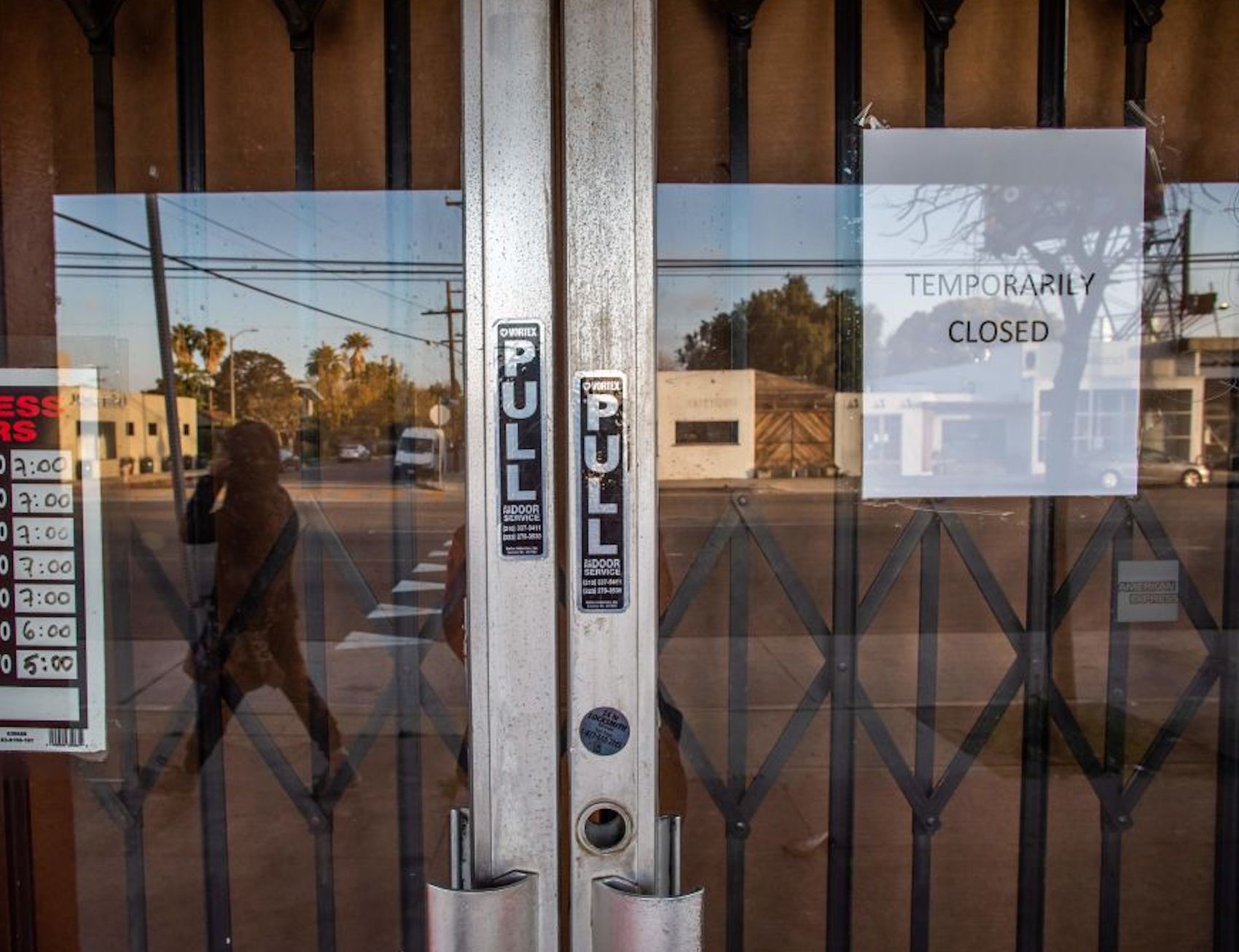Formerly Incarcerated Americans Were Excluded From Federal COVID-19 Relief
The Small Business Administration has created barriers for people re-entering the workforce after serving time in prison.

When Congress passed the CARES Act in late March, it created the Paycheck Protection Program—$349 billion in forgivable loans to help small businesses keep employees on their payroll during the COVID-19 crisis.
The bill Congress voted on did not exclude people with past criminal convictions from the program. But the Small Business Administration, which disbursed the funds, created new barriers for the re-entry population.
The agency adopted an April 3 rule that prevents people who have been convicted of a felony in the last five years, as well as those who are currently incarcerated, on probation or parole, or under criminal indictment, from obtaining a forgivable SBA loan. With that action, the SBA unilaterally decided some business owners were not worth saving during the pandemic.
“This rule, which is egregiously inconsistent with congressional intent, senselessly attacks business owners who were formerly incarcerated, are currently on probation, and even those who have not been convicted at all,” Representative Cedric Richmond of Louisiana said in an April 6 statement.
On the same day, Richmond sent a letter to Treasury Secretary Steven Mnuchin. “Congress did not intend for people who have been released from prison and followed the law to start or help start a business to be prevented from getting the capital they need to save it. Congress certainly did not intend to doom the businesses of those who have not even been convicted at all,” he wrote.
The SBA declined The Appeal’s requests for comment.
Small business loans can be lifelines for formerly incarcerated people, many of whom receive vocational training in prison to work in plumbing, automotive engineering and other trades because of barriers to employment. Others, like Marcus Bullock, turned to entrepreneurship after struggling for years to find meaningful work. Now his company, Flikshop, employs formerly incarcerated people and serves the justice-involved community.
But five days after the SBA issued its rule, Bullock noted in a video that his bank asked about prior felony convictions going back seven years—not five.
Bullock was eligible because enough time had passed since his conviction, although he did not obtain a loan before the relief program ran out of funds.
David Schlussel, deputy director of the Collateral Consequences Resource Center, also noted that the borrower application form goes even further than the SBA’s rule, disqualifying applicants whose cases concluded without a conviction. “This is a really important aspect of the barriers that the SBA has put in place,” he said. “The application form makes ineligible even certain people whose cases concluded without a conviction.”
If these inconsistencies are widespread, countless business owners who were legally eligible for economic relief could be excluded or discouraged from completing an application.
The SBA’s rule is also inconsistent with recent bipartisan sentencing reforms that encourage re-entry and transitional programs that reduce recidivism. People released early under the First Step Act who remain on supervised release cannot obtain a loan under the rule.
Formerly incarcerated people are “generally an afterthought” for most Americans, Richmond told The Appeal. He maintains that the SBA does not require congressional action to change course, but said leaders of the Congressional Black Caucus are working to remedy the issue in subsequent COVID-related legislation. Black Americans, who are overrepresented in the criminal legal system and more likely to die of COVID-19 than any other group in the U.S., will most likely be disproportionately affected by the SBA’s actions.
The legislative process usually has opportunities to address the way laws “carve people out,” deciding who is worthy and who is not, according to Kara Gotsch of The Sentencing Project. But because these exclusions were never specified in the CARES Act, that type of advocacy was not possible.
Others say work must be done to make federal conviction laws and policies correspond to those at the state level. “Many state laws say that once a record is expunged it is ‘as if it never occurred’ which may well lead some to believe that they don’t have to report expunged records,” said Margaret Love, executive director of the Collateral Consequences Resource Center. “That is not true—and in fact very few federal laws and rules give effect to the typical state expungement.”
Congress and the White House are said to be nearing an agreement to add $310 billion to the relief program, after large restaurant chains and publicly traded companies received millions of dollars in loans, running the program dry. But behind the thousands of small business owners waiting in line for a second wave of loans stand untold numbers of eligible business owners who were barred from applying.
“We’re talking about the American economy,” said Jay Jordan, the executive director of Californians for Safety and Justice. “If someone has a business that has been paying taxes and providing services to customers and they are in need, what sense does it make to not allow them to benefit from a government loan program like anybody else?”
Update: This piece was updated with a comment from David Schlussel.
